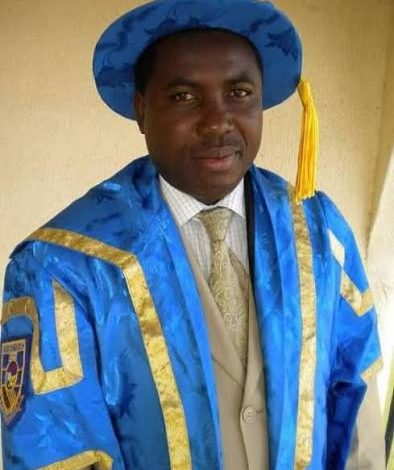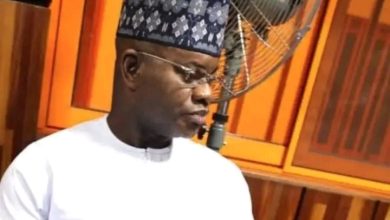Shari’ah Council Demands Tinubu Reverse Appointment of INEC Chairman Over ‘Genocide’ Legal Brief

By Passman Akpos
Abuja — The Supreme Council for Shari’ah in Nigeria (SCSN) has urged President Bola Ahmed Tinubu to immediately reverse the appointment of Professor Joash Ojo Amupitan (SAN) as Chairman of the Independent National Electoral Commission (INEC), following revelations that he once authored a controversial legal document describing attacks in Northern Nigeria as “Christian genocide.”
The Council’s demand came after an exclusive SaharaReporters investigation revealed that Amupitan, in 2020, wrote a legal brief titled “Genocide in Nigeria – The Implications for the International Community” as part of a publication by the International Committee on Nigeria (ICON), a human rights advocacy group.
According to the report, the document — issued under Prof. Joash Ojo Amupitan (SAN) & Co., Legal Practitioners & Corporate Consultants — characterized the violence in Northern Nigeria as “a pogrom against Christians and minority groups,” and called for urgent international intervention.
In a strongly worded statement issued on Friday, November 7, 2025 (16th Jumada I 1447 AH), the SCSN said it received the revelations with “deep disappointment and grave concern,” describing Amupitan’s brief as “provocative, distorted and bigoted assertions” against Muslims in Northern Nigeria.
> “If indeed Prof. Amupitan authored the said document, his submissions are not only unbecoming of a person of learning but dangerously inimical to the unity, peace, and stability of our country,” the Council said.
The SCSN accused the new INEC Chairman of pushing “divisive, sectarian, abusive, and factually inaccurate narratives against a majority faith community.” It argued that Amupitan’s reported claims of a “Christian genocide” grossly misrepresented the nature of insecurity in the North.
> “The violence ravaging Northern and North-Central Nigeria is complex and multi-dimensional. Both Muslims and Christians have suffered immensely from extremist attacks, banditry, and communal conflicts rooted in accumulated neglect, poverty, and social injustice,” the Council stated.
Citing data from humanitarian agencies, the Council insisted that Muslims have, in fact, been the largest victims of violence in the affected regions.
> “Credible humanitarian data from independent and international sources reveal that Muslims have suffered more casualties in these conflicts than any other group. From Borno to Zamfara, Katsina, Sokoto, Kebbi, Niger, and Yobe — over 90 percent of the victims are Muslims,” the statement said.
The Council further condemned what it called Amupitan’s “malicious distortion of history,” particularly his alleged attempt to link present-day insecurity to the 19th-century Jihad of Sheikh Uthman bn Fodio.
> “The Jihad of Sheikh Uthman was not a war of hatred or extermination; it was a spiritual, moral, and social reform movement that restored justice and ethical governance. Associating it with terrorism is both ignorant and insulting,” the SCSN declared.
Expressing doubts about Amupitan’s neutrality, the Council said his writings “call into serious question his ability to conduct free and fair elections in a multi-religious, multi-ethnic nation.”
> “Presiding over Nigeria’s electoral system demands the highest standards of neutrality and inclusivity. By his own words, Prof. Amupitan has demonstrated a deep-seated prejudice that undermines public confidence in his capacity to oversee credible elections,” it added.
The SCSN therefore called on President Tinubu to “immediately review and reverse” Amupitan’s appointment, warning that the integrity of Nigeria’s democratic process “cannot be entrusted to someone whose record reveals open hostility toward one of the country’s largest faith communities.”
Despite its criticism, the Council appealed for calm across the country, urging Nigerians of all faiths to reject divisive narratives and focus on shared national challenges.
> “We urge all Nigerians, Muslims and Christians alike, to unite against our true enemies — injustice, corruption, poverty, and insecurity,” the statement concluded.
The controversy comes barely a week after Amupitan’s inauguration as INEC Chairman, marking the first major challenge to his appointment amid growing scrutiny over the impartiality of Nigeria’s electoral body.





